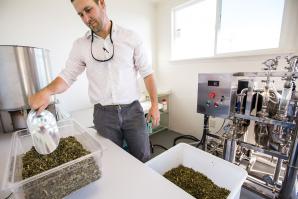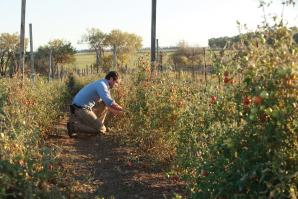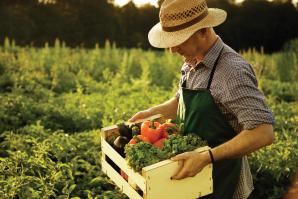
Sugar & Splice
The Capital Region offers everything nice for ag-bio companies like Stevia First
A Capital Region startup is striving to be among the first in the nation to produce the zero-calorie, natural sweetener stevia on an industrial scale. An agricultural biotech company, Yuba City-based Stevia First is bolstering its chances of success by actively collaborating with experts in the field, drawing on the area’s robust talent pool of farmers, agronomists, agricultural innovators and biotech experts to develop a product that’s superior in both taste and cost compared to its foreign competitors.

Safety Nest
Animal Place provides sanctuary for unwanted animals
Kim Sturla’s biggest challenge isn’t caring for thousands of animals at a time. It’s trying to get people to think about a pig’s life in the same way they would think about a dog’s.

Don’t Count Me Out
Though some say it's a ghost town, citizens refuse to let Rio Vista die
The town of Rio Vista has lost gas production, lost weekend crowds of boaters and windsurfers and lost flagship hotels and Delta shoreline restaurants. But more importantly, its people have lost the notion that prosperity returns to those who stick to the status quo and wait it out.

Land of the Fee
Can micro loans dig farmers out of their financial holes?
Today’s small farmer climbs an uphill battle to find land, secure capital and overcome the hefty start-up costs. Today, farmers make up less than 1 percent of the population (compared to 15 percent in 1950), they tend to be older (the average age is 57) and about 25 percent are expected to retire in the next 20 years. “This is a new problem for human society,” writes Sharon Astyk, author of “A Nation of Farmers.”

Waterborne Disorder
In the event of flood, area hospitals are at risk
In the hours before Hurricane Sandy hit New York last year, the country’s oldest public hospital thought it was ready.
Head above water
Jobs, water and general plan keep Woodland’s plate full
Paul Navazio stepped into his role as Woodland city manager at a busy time for Yolo County.

Eat it Up
Why you should salivate over Sacramento’s farm-to-fork mantra
In October of last year, Sacramento Mayor Kevin Johnson declared Sacramento the “Farm-to-Fork Capital of America,” presenting the city with a long-term opportunity to build a distinct brand identity that could help the region attract and retain citizens, conventions, tourists and entrepreneurs. It’s especially valuable because a strong regional identity gives energy to the economic engines that make cities successful. Anyone needing proof can look directly to Austin, Texas.

Neighborhood Watch
A planned development near Rancho Cordova is sparking intense debate
Infill or outpost? Sprawl or smart planning? How some people view the Cordova Hills development proposed for southern Sacramento County may depend on which end of Highway 50 they’re looking from.



